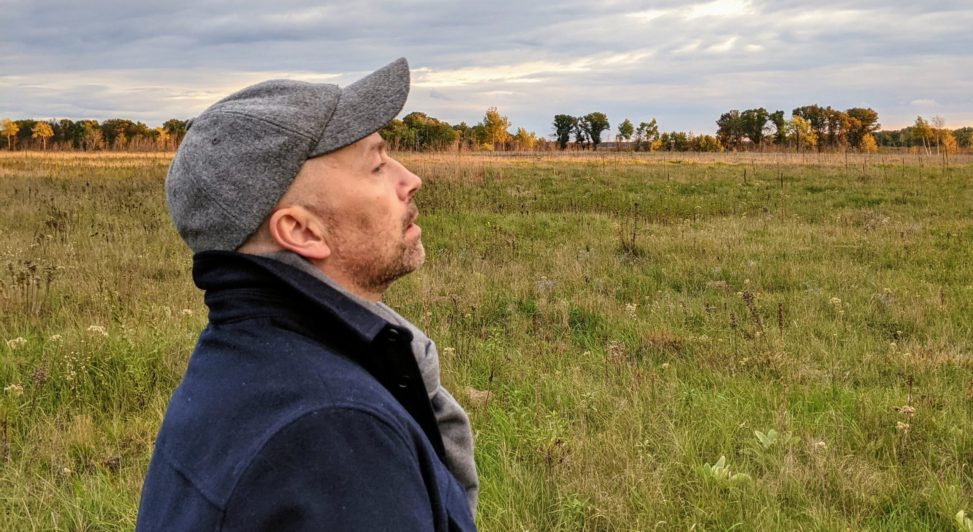Early Work
In the seventh grade, Lee and his friend Thadra passed poems—handwritten on Mead notebook paper—back and forth during social studies class. Lee can’t recall much schooling in poetry beyond having to memorize Lewis Carroll’s Jabberwocky at one point, but his interest in creative writing endured. In high school and college, he took several writing classes and completed an independent study project in short fiction during his final year at Lewis & Clark.
Serendipity
Lee rediscovered poetry in the early 2000’s. While browsing in a bookstore, he picked up an anthology that included classic poems by James Wright, Mary Oliver, May Sarton, Hayden Carruth, and many others. Reading these poems prompted him to enroll in classes at The Loft Literary Center. At the same time, he was lucky to have a close friend in the poet Merie Kirby, who entertained all his questions about reading and writing poems. She also invited him to join a multi-genre writing group.
In the years that followed, Lee took classes from poets such as Melanie Figg, Jude Nutter, and Deborah Keenan. In 2010 he received a Loft Mentor Series Award, which included a year-long fellowship to study with multiple writers, including Kristin Naca, E. Ethelbert Miller, and Jonis Agee. He began publishing poems shortly after, in journals and magazines such as Poet Lore, Salamander, The Gay and Lesbian Review Worldwide, Water~Stone Review, and elsewhere. And he continued to participate in various writing groups and workshops.
The Almost Book
In 2015, Lee’s poetry manuscript, The Next Strange Place, was a finalist for the Trio House Press Trio Award, the Jacar Press Book Award, and the Unicorn Press First Book Award. Individual poems were named as finalists for the Narrative Magazine annual poetry contest in 2015 and 2019. Additional publication credits include Midwestern Gothic, Nassau Review, Tampa Review, Tinderbox Poetry Review, Nimrod International Journal, and elsewhere.
Honey in the Dark
Lee’s poetry collection, Honey in the Dark, won the 2020 Brighthorse Prize and is forthcoming from Brighthorse Books in 2021. Many of the poems in this collection are about imagining life from different perspectives. As humans, we experience life as linear, with each choice we make closing off other possibilities as time marches forward. But even the happiest among us sometimes ponder the lives we might have lived, if only out of curiosity. What if we had made different choices, not due to regret, but simply out of the desire to experience more … of everything? What if time travel, multiplicity, technology, or magic made it possible to live more fully in this world? What might we encounter while living as a different gender, in a different body all together, or in the “finer folds and pockets” of nature?
Honey in the Dark honors the human experience while simultaneously inviting readers to imagine “the next strange place” we might find ourselves. The speaker in these poems travels his own timeline—from a vanished childhood to an unknown future—while also considering non-human existences: Life as an insect, as the color yellow, as language, and as the night watchman for the planet. The reality of grief and death are acknowledged, but any concession is conditional, even hopeful, suggesting that whatever awaits us next might be astonishing and beautiful—as this life often is. “After the dumb luck to have tripped / on the threshold of this planet // who’s to say?” he writes, reminding readers, “that this — this / is wonderful. Look now. This is all // about to change.”
